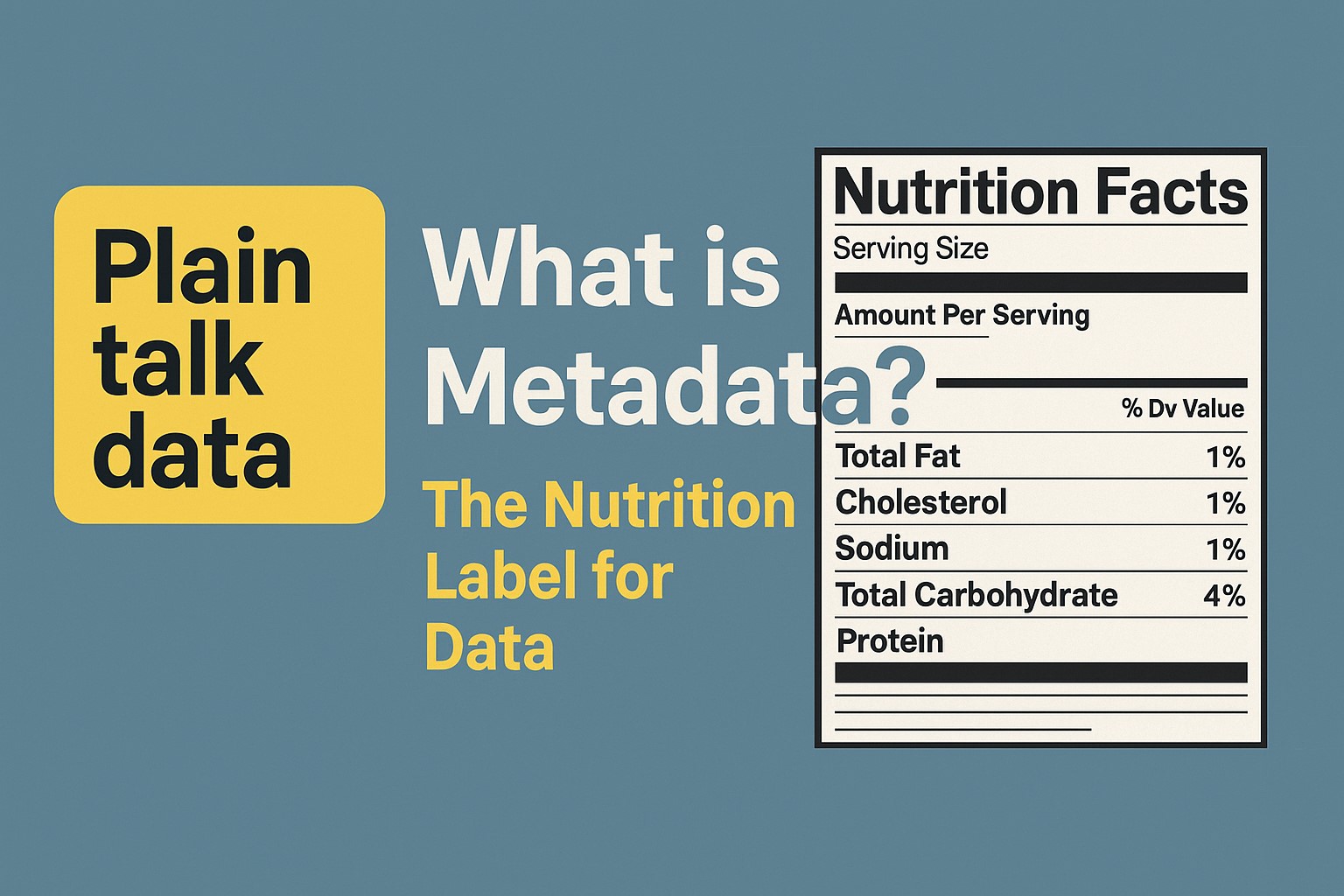Plain Talk Data: Metadata
A plain-English explanation of metadata - the nutrition label for your data. Learn why metadata is essential for data governance and management.
Plain Talk Data: Metadata
Metadata = “The nutrition label on your data”
You know how a can of soup has the actual soup inside, but the label on the outside tells you what’s in it, when it expires, and how many calories? Metadata is that label, but for data.
Understanding the Label
The actual data = the soup
Customer records with names, addresses, phone numbers
The metadata = the label
“This table was created March 15th, gets updated every night at midnight, contains 50,000 customer records, John from IT is responsible for it, don’t use the ‘temp_phone’ column because it’s garbage”
Why You Need the Label
Without metadata (nightmare scenario):
You find a spreadsheet called “customer_stuff_final_v2_REAL.xlsx” on the shared drive.
Questions you can’t answer:
- Is it current?
- Who made it?
- Can you trust it?
- What do these column names even mean?
- Is “status_flag” good when it’s 1 or 0?
With metadata (life is good):
Every piece of data comes with instructions: “Created by Sarah in Marketing, last updated yesterday, ‘status_flag’ = 1 means active customer, source is our main CRM system, refresh happens daily at 3 AM”
Real-World Examples
Photo metadata
Your phone stores when/where you took each picture, what camera settings you used, even if the flash fired
Library metadata
Every book has a catalog card telling you the author, publication date, subject, where to find it
Your data’s metadata
- Table descriptions and purpose
- Column definitions and data types
- Data sources and lineage
- Refresh schedules and frequency
- Data owners and contacts
- Quality scores and validation rules
The “Aha” Moment
Metadata is like having a really good filing system. Without it, you’re just hoarding random information. With it, you actually know what you have and whether you can trust it.
It’s the difference between:
- Organized toolshed with labeled drawers
- Pile of tools scattered in your yard
Why Metadata Matters
- Discovery: Find the data you need quickly
- Trust: Know if data is reliable and current
- Compliance: Track data lineage for regulations
- Collaboration: Share knowledge across teams
- Efficiency: Avoid recreating existing datasets
Think of metadata as the GPS for your data landscape - without it, you’re just wandering around hoping to stumble upon what you need.
